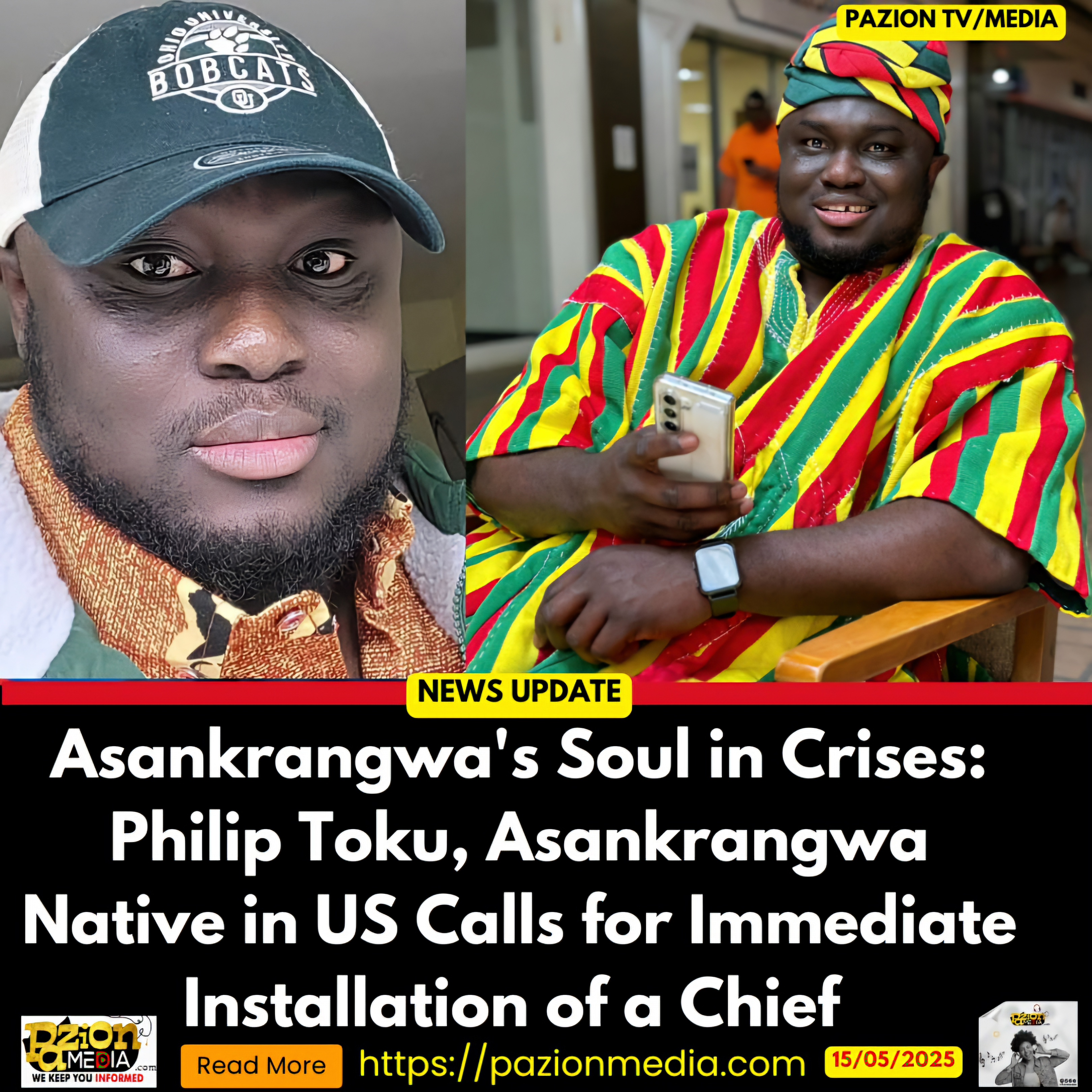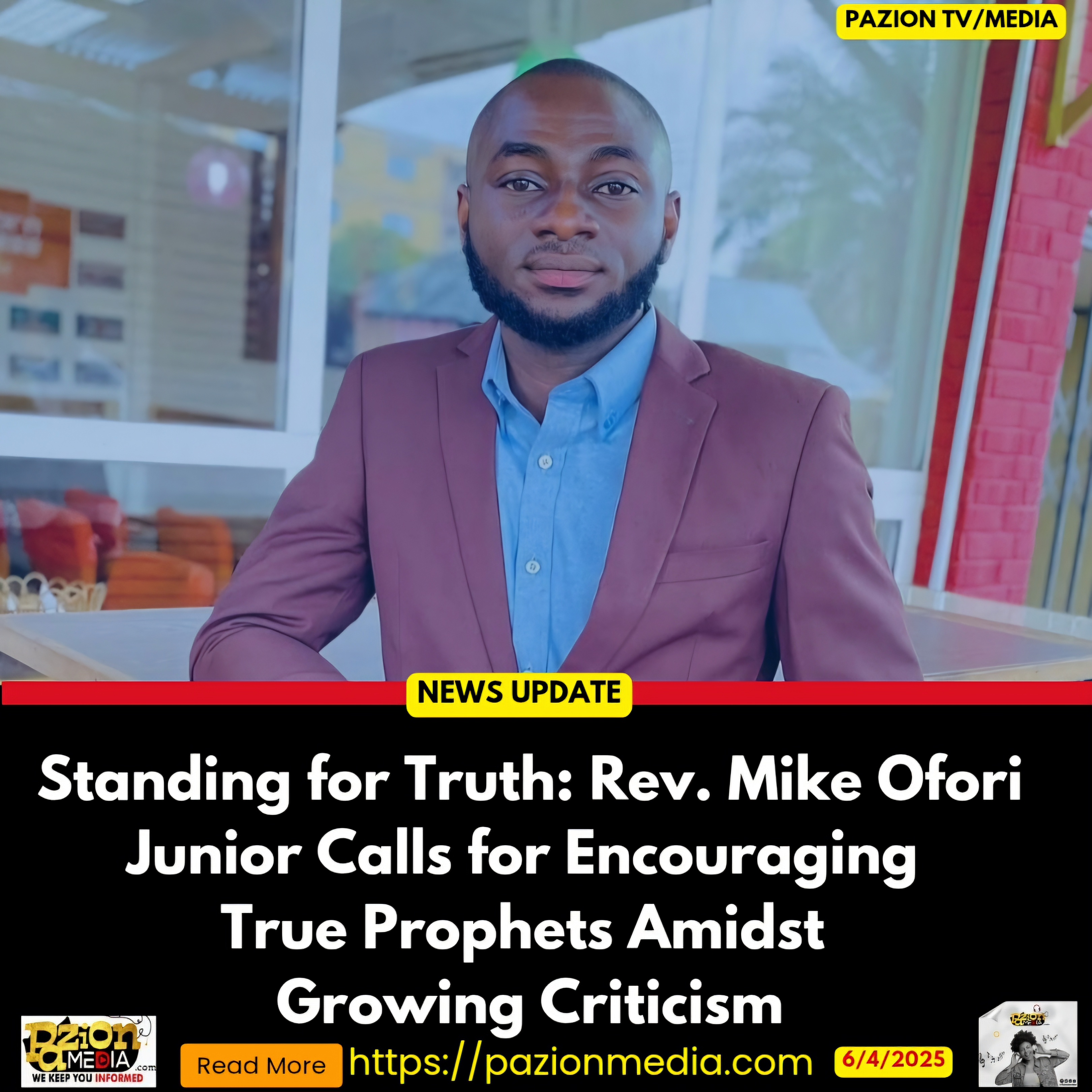
One fact that stands no doubt is: Jesus Christ did not only come to die to save sinners; he also came to establish a body called the Church. The word church is from the Greek word ‘ecclessia’ which means ‘the called out ones’. According to the tenets of the Church of Pentecost, the church is understood as consisting of people who have belief in Jesus Christ, who have been justified by God and have been regenerated by the Holy Spirit. Such believers are called to be with Him and live in relationship as His disciples. In His own words, Jesus said He would build His church and the gates of hell would not prevail against it (Matthew 16:17-18).
During the time of Jesus’ departure to heaven, the disciples asked whether Jesus was going to restore the kingdom to Israel (Acts1:6). Jesus told them: “Don’t focus on the kingdom; focus on the power you are about to receive–the power that will make you witnesses.” (Acts 1:8). I believe that being a witness of Jesus Christ is an ambassadorial position! (2 Corinthians 5:20). Just as Apostle Eric Nyamekye will put it: “The church is called out of the world to belong to God, and sent back into the world to witness and to serve.” However, the church has not been able to accomplish this purpose because through several means, the state, dominated by secular politics, has tried to prevent the church’s input on matters affecting the state. Yet, the church must not be unconcerned about whatever happens in the state. This is because during the exile of the people of Israel to the land of Babylon, God said: “But seek the welfare of the city where I have sent you into exile, and pray to God on its behalf, for in its welfare you will find your welfare.” (Jeremiah 29:7, ESV).
Auguste Comte, the French philosopher who coined the term sociology, reveals that there are three stages of societal growth–theological, metaphysical, and scientific. The theological stage is the primitive stage where powers of priests and the clergy dominated human society and explanations to events were purely religious. In this regard, the church played a very crucial role in everything concerning the state, and the appointment of state leaders was no exception. However, the scientific and the metaphysical or enlightenment era changed this way of doing things. Nonetheless, the church is the light of the state so long as the church exists. Jesus said that Christians are the light of the world (Matthew 5:14-16).
You are means you are! “The problem Christians have is that they make statements stated in present tense in scriptures past tense or futuristic tense. This is one of the crises we have.”–Apostle Michael Orokpo. That is to say, the Christians should be more concerned about current state of affairs of the nation. Our God is a ‘now God’!
But what happens when the church becomes dim? The answer is no hidden truth: the state will wander and cry for deliverance but will find none. The plight of the nation cannot be solved by politicians. Rather, it can be solved by Christians (2 Chronicles 7:14). That notwithstanding, it can be solved by politicians who are Christians and apply principles of the kingdom of God to that sphere. If the church places saving the state at heart, the state will be impacted positively, and these impacts will spread like wind in the desert, and all will know of it. It must be stated without any fear and doubt that the failure of the state is the failure of the church. Indirectly, if Ghana is failing, then Christians are failing! Would one be wrong to blame Christians for the inefficiencies in Ghana when over 71% of Ghanaians are Christians according to the 2010 population and housing census? Never!
As a poet, I summarize the groaning of Ghana in this way:
“Why watch me go down far beyond salvation?
Why only judge me when you can save me?
I’m not too spoilt–can’t you see?
But I promise,
I will surely worsen if you remain silent
Don’t be a spectator–I pray!
Be a restorer–all day!
If truly you are the light, lit me
And if you claim you are the salt, preserve me! ”
People like Joseph, Moses, Nehemiah and Paul had a national focus. They worked hard to influence their environments during their days on Earth.
Joseph (Son of Jacob) advised Pharaoh on what to do when famine was about to hit the land of Egypt so that the land will not perish (Genesis 41:44-36).
Moses stood in to fight for Israel on several occasions. First, he couldn’t watch them being burdened by the Egyptians. This made him kill an Egyptian when he saw the Egyptian beating a Hebrew (one of his own people) (Exodus 2:11-12). Second, in God’s desire to eliminate the people of Israel because of their stiff-neckedness, Moses petitioned God to relent from His anger and to remember His covenant with the patriarchs–Abraham, Isaac and Jacob.
Nehemiah was told: “The remnant there in the province who had survived the exile is in great trouble and shame. The wall of Jerusalem is broken, and its gates are destroyed by fire.” (Nehemiah 1:3, ESV). What did Nehemiah do? The Bible records that he wept, mourned, fasted and prayed to God for Jerusalem. Though he met oppositions, he went on to rebuild the wall of Jerusalem and its gates (Nehemiah 6:15-16).
Paul couldn’t understand why idol worship should engulf the city of Athens. This provoked his spirit (Acts 17:16-17). He preached to the people, met oppositions, but eventually won some of them for Christ (Acts 17:34).
How does the church fail the state?
The fact that 71% of Ghanaians are Christians implies that Christian principles should more often influence the way Ghana operates. Don’t you think Ghana should have been one of the wealthiest and the most corruption-free countries if every seven out of ten people you meet are Christians? The kingdom of God is likened to a mustard seed, which as tiny as it is, grows to become a giant tree when given a little opportunity. 71% of Christians’ presence goes beyond mustard seed to rather a “master seed” that cannot lose grounds to evil. But why are things going wayward?
First and foremost, majority of Christians live anti-Christian lives. A Christian is known by what he does more than what he says. It is easier to say something than to do it, and so if a man can do all that he says, he will win the trust and confidence of all. Is it not sad that many Christians can recite the scriptures but fail to do exactly what the scriptures expect them to do? Think about it! This is what the unbelieving world finds unbelievable! We listen to virtues at church on church days, but return home and practice vice. Even within the walls of the church, some do ungodly things. This is so, so sad! We speak against bribery and corruption, yet we secretly salute pay-off. We speak against adultery and fornication, yet we drink from their cups and eat in their bowls. How then can we possibly save this state of the nation?
Secondly, the church has left politics for the unbelievers. The refusal of the church to motivate Christians to enter into politics is a great doom for our country, Ghana. Christians buttress their indifference towards politics by saying that politics is a dirty game. Apostle Professor Opoku Onyinah (Rtd) counters this assertion by saying: “If politics is a dirty game, then Christians are the soap to make it clean.” Just imagine ‘a Ghana’ where almost all the state leaders are unbelievers! Wouldn’t this be a disaster for the Christian community?
Finally, the Great Commission is done more often on cooperate level than individualized level. Apostle Dr. Jimmy Markin said that the church exists only because of the Great Commission. The Great Commission is the command given to all Christians by Jesus Christ to preach the good news to all creatures and to win them for Christ. The command can be fulfilled on a cooperate basis or on individual basis. Most Christians are always in when it’s about the cooperate level; the individual level–many Christians ignore! But I believe that in order to cause a significant change, the individual-level evangelism must be held in high esteem.
It may sound strange but the church failing the state is too easy. Why won’t the church try something more challenging — to save the state? We can save the state by doing the following:
The first thing the church must do is to teach and train her members to be Christ-like Christians, not only church-goers: Jesus was so emphatic according to Matthew’s account when he was ascending to heaven with regards to what the early church had to do. He told them to teach (Matthew 28:18-20).
Teaching must be a deliberate activity. Charles Spurgeon says: “Begin to teach early for children begin to sin early.” When the church fails to teach her members the godly principles, Christians will lack knowledge in the things of God and this will make them liabilities to the state. Now the pain is: whenever the church fails in this regard, indirectly or directly, God has failed! This is because the glory of God is exhibited through the activities of Christians. Hence the name Christians was attained due to the way of life of the early disciples of Jesus (Acts 11:26). The church also needs to train her adult members (Proverbs 22:6). I don’t want to believe that this quotation can’t work on adults. Adults also need as much training as children.
Moreover, the church must encourage her members to vie for leadership positions in schools, organisations, communities, and all sectors of the economy. It is surprising that people who profess other faiths other than Christianity are more eager to enter into leadership positions than Christians. Go to most schools and you see Muslims and people who are not Christians occupying key SRC positions. This is disturbing! I believe that Christianity won’t impact a lot of lives in this era if non-believers rule Christians and make rules for them. It is good that people like Apostle Professor Opoku Onyinah (Rtd) and Daniel Asomani are urging Christian youths to vie for leadership positions wherever they find themselves. It is known that The Church of Pentecost has established a Political Chamber to train Christian youths to enter into politics and change the paradigm. However, I believe that if the Ghana Pentecostal and Charismatic Council, the Christian Council of Ghana, and other Christian bodies can champion this course, it will go a long way to help.
It is also important to state that the church must feed its members with the ‘I am the light and salt of the world’ mentality. The Church of Pentecost’s possessing the nations vision is a great step up the ladder. If you think you are inferior, you can never do anything superior. This–I believe–holds true in all aspects of life and for everyone, and the Christian can’t be excluded. Therefore, if the Christian loses focus of their responsibility as the light and salt of the world, the world will see darkness, and eventually rot. As the light and salt, the church must bring salvation and not destruction; making a positive difference towards society and not indifference towards issues affecting the state. Once Christians are taught to understand that the survival of the state rests on their shoulders, they will take charge and work hard.
Additionally, I believe that the church as God’s body on earth should act before any other institution acts when things are going wayward. More often, it saddens my heart that Christians fear to voice out their views. Fear and failure have entangled Christians in most endeavours of life. Kaakyire Caleb says: “Cowards are the favorites of failure. When failure roars at you, stand face-to-face with it and roar back.” The church shouldn’t sit for the media houses to call on them before they rise to act when Ghana is going shipwreck. When they sit for the worst to happen, they will be fed with it.
Furthermore, Christians everywhere must be influential. If you can’t influence your sphere as a Christian, you can hardly cause a positive change there. The Bible records that Daniel, Mordecai, Esther, Elijah and a lot of Bible characters greatly influenced their spheres. But what do we see today? You go to an office and you hardly recognize a Christian. Same at the banking sector, in schools and so on. Apostle Emmanuel Agyemang Bekoe once said: “It is better to command respect than to demand it. We must not demand respect; we must command it, as Christians.” For Christians to be influential or impactful, they must command respect. Once this is done, they will dominate wherever they are.
What will happen when the church fails to save sinking Ghana?
A chaotic state will first of all be seen when the church fails to save Ghana. Christians are peace-seekers. When Jesus was born, the host of angels proclaimed: Peace on earth (Luke 2:10-14). This means the presence of Christians breed peace. Christians are Sons of God and all sons of God are peacemakers (Matthew 5:9). So, when the church fails, obviously violence and chaos will reign in Ghana.
Secondly, when the church fails to save the sinking state, the natural environment will soon go extinct. No wonder environmental pollution is on the rise! Deforestation is on the ascendancy. Illegal mining is on a high pedestal. The God of the Christians commands Christians to take good care of the environment (Genesis 2:15). Once the natural environment goes dead, all humans are dead. Always remember that when the last tree dies, the last man dies.
Also, laws that go contrary to the Word of God will be enacted and enforced. Few months ago, the Lesbian, Gay, Bisexual, Transgender and Queer (LGBTQ) community managed to open an office in Accra-Ghana. It took the Christian community to mount pressure on the government to have the office closed. When the church fails the state, abominations will have their ways into the country.
It has been established that the state is at the verge of sinking and the church is the rescuer in this regard. The church therefore should be very much concerned about those who hold key leadership positions in the country, in all sectors of the economy. The church should take its position as salt and light of the world and save the state. If the church wants to wait for things to go worse before her intervention, she should remember this maxim: ‘It is easier to save a ship from sinking than to save a sinking ship.’

 Pazionmedia.com Pazion Media l Latest News l Politics l Sports l Entertainment
Pazionmedia.com Pazion Media l Latest News l Politics l Sports l Entertainment



